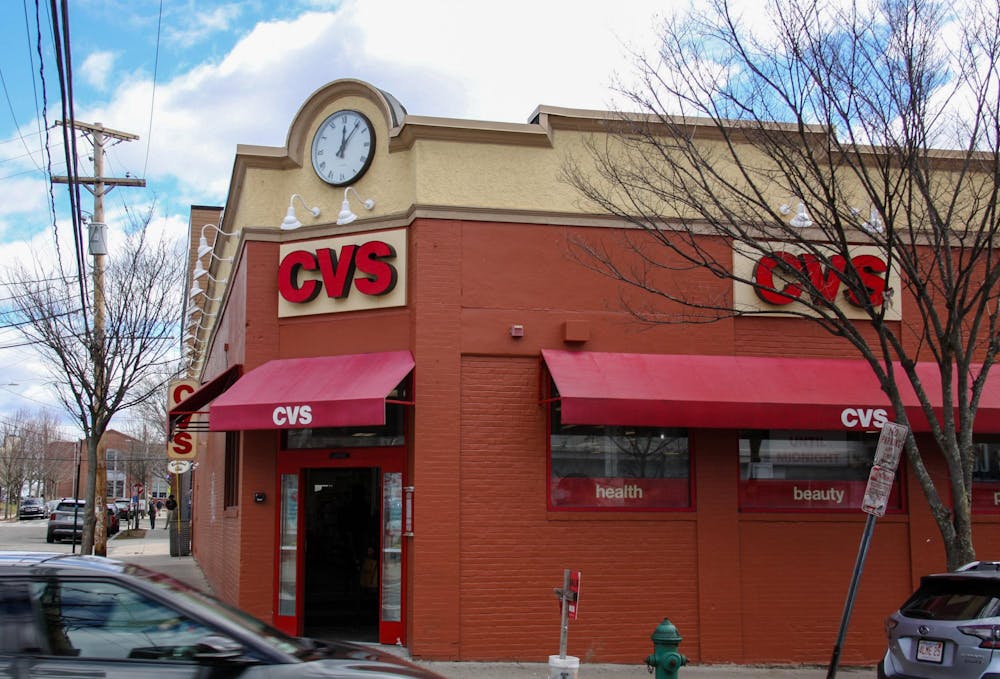On March 1, CVS Pharmacy announced that it will start dispensing abortion pill mifepristone in its Rhode Island and Massachusetts locations.
Mifepristone is the first drug in a two-step abortion treatment, which also involves taking a second medication misoprostol. The two-step regimen is 94% to 98% effective for pregnancies lasting up to eight weeks, according to Planned Parenthood. The efficacy of the treatment decreases as the pregnancy continues, with an 87% efficacy rate at 11-weeks pregnant.
While misoprostol can induce abortion by itself, it is more effective when taken alongside mifepristone. In legally permissible states, misoprostol is also available in pharmacies and accessible via a prescription, whereas mifepristone could previously only be obtained at licensed medical facilities.
The in-person dispensing requirement was removed by The Food and Drug Administration in January 2023, The Herald previously reported. The decision established a “pharmacy certification process,” which evaluates retail pharmacies to allow them “to dispense mifepristone directly to patients who have a prescription from a certified prescriber,” according to the FDA advisory.
“We’ve received certification to dispense mifepristone at CVS Pharmacy and plan to fill prescriptions for this medication in states where legally permissible,” wrote Amy Thibault, director of external communications for CVS Pharmacy, in a statement shared with The Herald.
According to the statement, CVS plans to expand its dispensing of mifepristone to other states, as permitted by law.
Medical abortion is legal in 36 states and Washington, D.C. The 14 remaining states have explicit bans against it. In 2020, over half of the abortions in the United States were conducted through medication, according to research conducted by the Guttmacher Institute, which advocates for the advancement of reproductive rights.
This month, the Supreme Court will hear oral arguments on the case Alliance for Hippocratic Medicine v. FDA. The case originally challenged the constitutionality of medical abortion altogether. In December, the Court stated that it would only hear arguments on the protection of policies expanding access to mifepristone.
According to Benjamin Brown ’08 MD’12, assistant professor of obstetrics and gynecology at the Warren Alpert Medical School, “mifepristone has long been subject to medically unnecessary restrictions on how it can be prescribed and dispensed,” he wrote in an email to The Herald.
“These barriers to care are not based on science, and at the end of the day, they can prevent people from getting the care they need,” Benjamin Brown added. “Retail pharmacy dispensing of mifepristone is one key step to helping people access this essential health care in the way that’s right for them.”
Diversifying ways to access abortion care serves as an important step to destigmatizing reproductive health, according to Naomi Ninneman, associate director for empowerment and prevention at BWell Health Promotion.
“Stigma very often gets in the way of people being connected to the services and resources that would be most appropriate or beneficial for them,” she wrote in an email to The Herald.
Ninneman added that the University has introduced free emergency contraception and outreach to inform students of “the breadth of sexual and reproductive healthcare that is available to them.”
“At the end of the day, retail pharmacy dispensing of mifepristone is a critical step toward more patient-centered, accessible abortion care,” Benjamin Brown said. “I’m grateful to know that my patients will have this option available to them.”

Maya Kelly is a metro editor from Providence who covers community, crime and activism as well as business and development. A concentrator in urban studies and data fluency, she is passionate about intersecting storytelling with data analysis. When Maya's not at The Herald, you can find her hanging from an aerial silk, bullet journaling or in the middle of a forest.

Tom Li is the editor-in-chief and president of The Herald's 135th editorial board. He is from Pleasanton, California and studies economics and international and public affairs. He previously served as a metro editor, covering the Health & Environment and Development & Infrastructure beats, and has worked on The Herald's copy editing, editorial page board, design and podcast teams.





